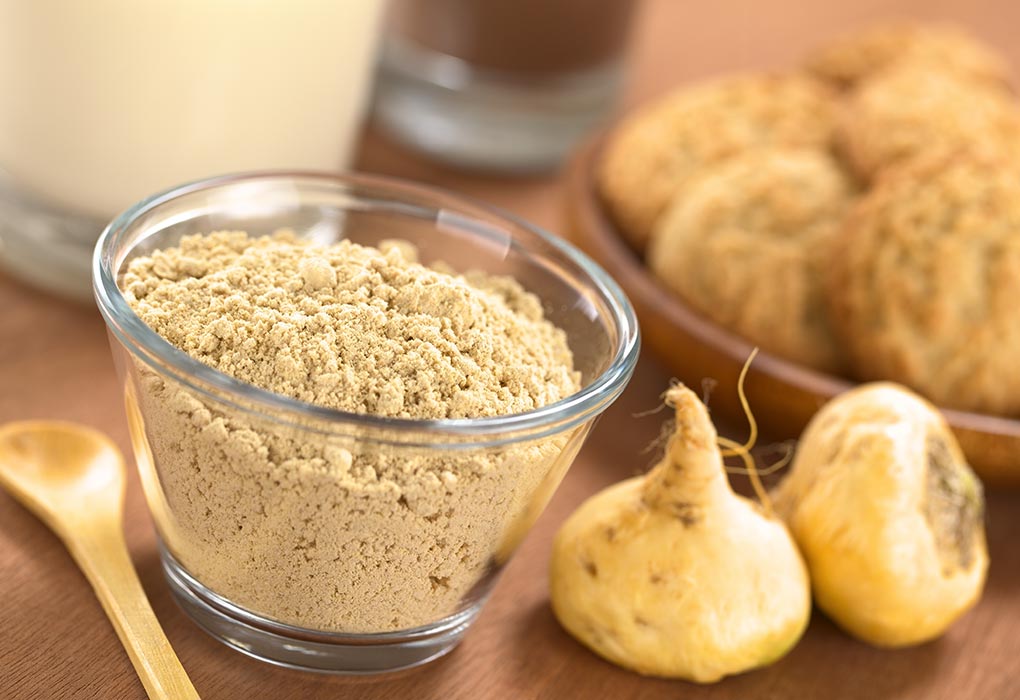Maca root powder may be the most recent superfood to hit your Facebook feed, but its benefits are nothing new. This ancient natural treatment has been extensively examined, and the results show that it possesses hormone-balancing and symptom-soothing characteristics.
In a nutshell, maca root powder works as an adaptogen, which helps your endocrine system create the right amount of hormones for you. Maca can assist your body in “adapting” to difficult living conditions, which could otherwise deplete your body’s hormone production and induce symptoms.
Maca root powder is a fantastic resource to have on hand, especially when its benefits can be most beneficial. Maca is not for everyone and everyone all of the time. Digging deeper and learning more about this potent supplement can assist you in getting the most out of it.
Table of Contents
Is Maca Able to “Cure” Hormonal Imbalances?
Although some claim that maca can heal all of your period problems and regulate your cycles, I don’t recommend viewing it as a miracle solution for all hormonal afflictions. I’ve never seen a single product treat a woman’s PMS, PCOS, cramps, acne, irregular cycles, or reproductive difficulties. Unfortunately, adding a supplement or one food, no matter how “amazing,” rarely helps to help a woman overcome hormonal issues.
What’s the Best Time for Women to Use Maca?
In my opinion, there are three times in a woman’s life when she would benefit greatly from consuming maca root powder daily as part of a larger hormonally-supportive diet. Those are the times:
- After 35, you will experience perimenopause, followed by postmenopause.
- After you’ve stopped taking the birth control pill.
- Following the birth of a child (and have stopped breastfeeding).
Maca root powder might assist your body in producing more hormones at this time when your endocrine system may be failing due to perimenopause, pill suppression, or lack of sleep after childbirth. As an adaptogen, maca root powder essentially assists your endocrine system in performing its functions in less-than-ideal settings. These three stages of life might put a strain on your endocrine system.
Let’s be skeptical of labeling anything as a miracle treatment (whether it’s maca, vitex, or dong Quai…). Maca has many beneficial properties, but it is not a panacea. However, maca can be a very efficient supplement when combined with meals.
After the age of 35, after using the Pill, after having a baby, you may be facing a variety of hormone-related ailments that maca might help with, such as:
- Energy levels are low.
- The sex drive is low.
- Brain fog and difficulty focusing or concentrating.
- Depression and mood swings.
- Symptoms of PMS.
How to Use Maca Root?
The most crucial thing about maca root powder is that it comes in various varieties. More brands will emerge as maca becomes more popular, but keep in mind that the glucosinolate component is required to enjoy maca’s hormone-balancing effects. Look for brands that contain more than 1% glucosinolate as a standardized extract.
One of the most favorite ways to consume maca is in the form of a smoothie. Initially, a teaspoon will suffice, but you can gradually increase the amount if you find it beneficial.

There are three types of maca powder: red, black, and yellow. Yellow maca powder is the most common and usually the least expensive, and it has the same amount of minerals, fatty acids, amino acids, and micronutrients as the other two. However, red and black maca powders have certain distinct researched features that set them apart — red, for example, red has been proved to be particularly beneficial in treating acne, infertility, and low energy.
Raw maca powder is preferable to cook or gelatinized maca powder in terms of enzyme and nutritional content (although, if you have a sensitive digestive system, cooking may be easier on your stomach). For me, the best maca powders are those that contain all three forms of maca, allowing you to benefit from all three at once.
When Shouldn’t a Woman Use Maca?
Maca root powder is an excellent supplement for those times when our bodies want extra help to get back on track. However, when you’re between the ages of 15 and 35, following a hormonally supportive diet should be adequate to balance your hormones, resolve period difficulties, and manage your cycles. Because maca contains substantial iodine levels, it should not be used if you have an iodine allergy, Hashimoto’s disease, or any thyroid nodules or growths.
Book an appointment now to answer all your queries. You can book an appointment with the top Gynecologists in Karachi through Marham by calling the Marham helpline: 0311-1222398 or online booking facility through the website or Marham mobile app.
Frequently Asked Questions(FAQs)
1- Does Maca Root Change Your Period?
Although health officials consider maca to be generally harmless, some users have reported adverse effects. These symptoms include irritability, cramps, stomach discomfort, and insomnia. Furthermore, several women claim that maca influenced their menstrual cycles.
2- Can Maca Change Ovulation?
While you should eat a nutritionally packed diet in general, maca is an excellent way to increase your consumption of vital fuel for ovulation and conception.
3- Can I Take Maca During My Period?
Maca powder has been demonstrated to help regulate hormones, which may aid in the relief of PMS symptoms. Many women also report relief from menopausal symptoms and greater fertility.
